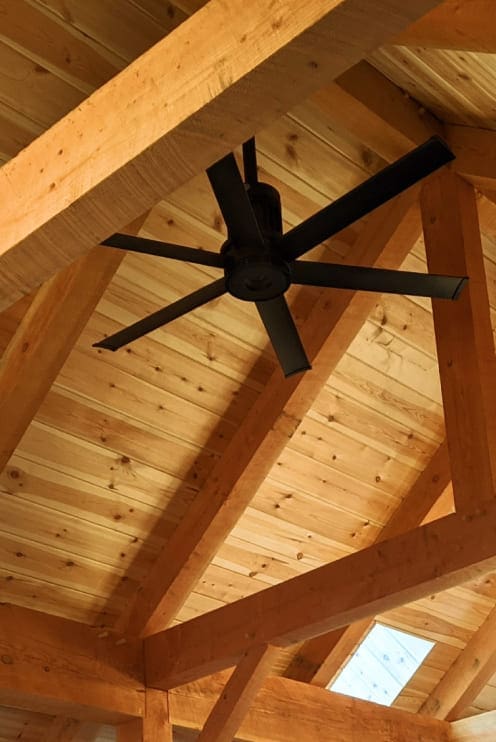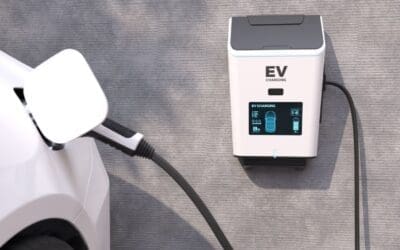⦁ Check Your Electrical Panel
Begin by inspecting your electrical panel or fuse box. Make sure it’s properly labeled, and circuits are easy to identify. If you encounter tripped breakers or blown fuses frequently, it may indicate an overloaded circuit. Additionally, during your inspection, ensure that there are no unusual odors, signs of overheating, or buzzing sounds emanating from the panel. Any of these symptoms can indicate underlying electrical issues that should be promptly addressed by a professional electrician to prevent potential hazards and keep your family safe.⦁ Inspect Outlets and Switches
Look for any loose or damaged outlets and switches. Replace any cracked or broken cover plates. Ensure that GFCI (Ground Fault Circuit Interrupter) outlets are installed in areas where water is present, such as kitchens, bathrooms, and outdoor spaces.
GFCI outlets are crucial in areas where water is present because they provide an extra layer of protection against electrical shocks. Water and electricity can be a deadly combination, and GFCIs are designed to quickly cut off power if they detect any irregularities in the electrical flow, such as when an appliance comes into contact with water or a ground fault occurs.
This rapid response helps prevent potentially life-threatening accidents. Regular testing is essential to ensure they are functioning correctly, as over time, they can wear out or become less sensitive. It’s a simple yet vital step in maintaining a safe environment.
⦁ Examine Wiring and Cords
Check for frayed or damaged cords on appliances and electronics. Replace them immediately. Firstly, damaged cords can expose wires, increasing the risk of electrical shocks, fires, and potential harm to individuals in your home. Secondly, frayed cords can lead to electrical shorts or arcing, which can result in power outages and damage to your electrical devices. By promptly replacing frayed or damaged cords, you ensure the safe and reliable operation of your devices while reducing the risk of electrical accidents and fires in your home. Avoid running extension cords under rugs or carpets, as this can cause overheating and fires.⦁ Test Smoke Detectors and Carbon Monoxide Alarms
Ensure that all smoke detectors and carbon monoxide alarms are in good working condition. Test them monthly and replace batteries as needed. Consider interconnected alarms for better coverage.⦁ Outdoor Electrical Safety
- Inspect outdoor electrical outlets, ensuring they have weatherproof covers.
- Keep outdoor cords and equipment dry and away from standing water.
- Trim trees and shrubs that may be interfering with overhead power lines.
⦁ Investigate Flickering Lights or Frequent Electrical Issues
If you notice flickering lights, sparking outlets, or other irregularities, consult an electrician promptly. These can be early signs of wiring problems or other electrical issues that need attention.⦁ Childproof Electrical Outlets
If you have young children, install outlet covers or safety caps to prevent them from inserting objects into outlets. Curious children often explore their surroundings by inserting objects into outlets, which can result in electrical shocks or serious injuries. This simple precaution can provide peace of mind for parents and caregivers, ensuring the safety of little ones as they grow and learn in their environment.⦁ Schedule Regular Electrical Inspections
Consider scheduling periodic electrical inspections by a qualified electrician, especially if you have an older home. They can identify potential issues and recommend necessary upgrades.⦁ Emergency Preparedness
In case of power outages, have a backup plan. Equip your home with emergency lighting, a portable generator, or battery-operated devices to ensure your family’s safety during electrical disruptions.Your Family’s Safety Matters
By following this Home Electrical Safety Checklist and staying vigilant, you can significantly reduce the risk of electrical hazards in your home. Remember that your family’s safety is paramount, so take the necessary steps to keep your electrical systems in good working order.
If you ever encounter electrical problems you cannot address yourself, don’t hesitate to contact us at 301-515-8676 we are qualified and we ensure the safety of your home and loved ones. Hire the best electricians in Maryland, Virginia, and the DC Metro area.
With offices in Ijamsville, MD & Linville, VA, Got Electric offers residential and commercial electric work, including installation, safety inspections, repairs, lighting design, and troubleshooting.
Got Electric also specializes in solar Energy Projects. Our electricians are fully licensed by state and local jurisdiction, ensuring that your electrical projects will be installed to industry and code standards.
Energized by Auxilium Technology






